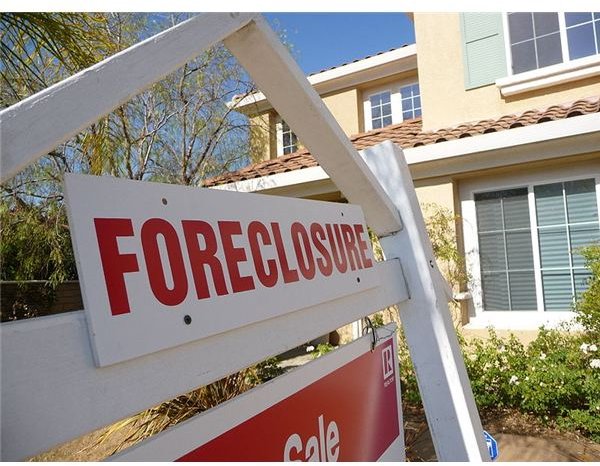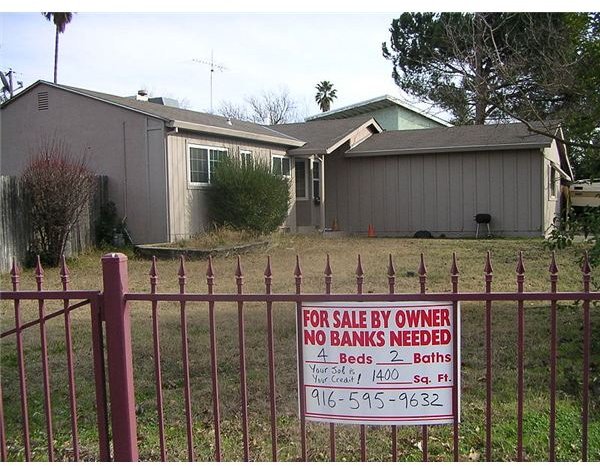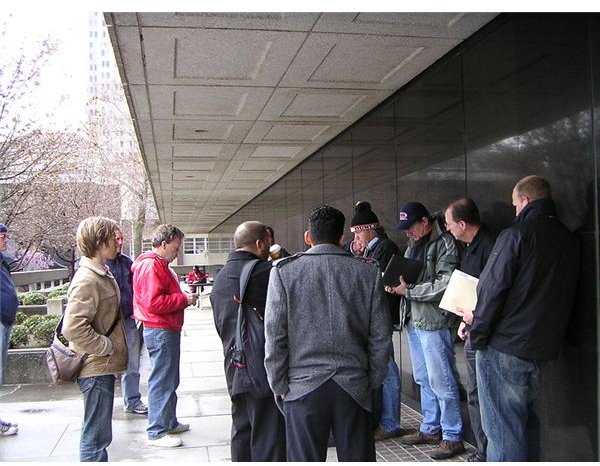Foreclosure Redemption Period- A Legal Complication in Buying Foreclosed Homes
The Ethical Aspect of Foreclosure Proceedings
We have previously provided information on how to buy foreclosed homes, which is related to lowering the fees and the loan amortization to pay when applying for a home financing loan to buy the foreclosed property. This article provides information about a legal provision known as the foreclosure redemption period and how it could possibly affect your position as the buyer of a foreclosed property.
Numerous borrowers went through terrible financial difficulties as they were rendered jobless by the recent economic recession, which led to mortgage default payments and eventually property foreclosures.
However, this misfortune presented economic opportunities for aspiring homeowners or prospective investors to acquire property at a very low price. While it may seem like an unfeeling act since the opportunity stems from the disadvantaged position of a borrower, the observation and recognition of the legal grace period provide the ethical element in the process of taking away the original homeowner’s right over his property.
It is to your advantage to know about this, in order to understand the full context of the agreements you are entering into when buying a foreclosed home via home financing or COD. Keep in mind that said provision is for the protection of the original borrower and not for the present buyer.
What is Foreclosure Redemption Period?

Foreclosure redemption period refers to the specific length of time extended to home mortgage loan borrowers, within which to redeem or buy back their property. That is, if said property held as collateral by the lender was foreclosed and put up for sale at a public auction.
This happens after a borrower fails to respond positively to all calls or demands for him to settle his defaulted obligations with the lender.
There are several considerations to be met before a borrower/ homeowner can redeem his foreclosed property:
(1) The property was held under a Deed of Mortgage or Deed of Trust.
(2) The lender coursed the foreclosure through judicial proceedings.
(3) The borrower/ homeowner pays the mortgage obligation due to the lender, including all foreclosure fees and taxes paid for the property.
(4) The redemption claim and the payment should be made within the allotted time period prescribed by state laws.
All 50 states of the U.S. have distinct and separate laws regarding the length of time by which this redemption period is recognized by all parties involved, including the buyer of the foreclosed property.
Why is This Particular Provision Important for Buyers?

Buyers of foreclosed homes are easily enticed by the idea of getting a good deal from buying foreclosed properties at public auctions. What makes this even more interesting is that they could take out loans from banks or lending institutions as their means to pay for the foreclosed property.
However, buyers should bear in mind that the certificate being awarded by a sheriff or auctioneer-in-charge in exchange for the highest bidder’s buying price is not one of ownership.
The document issued is a “Certificate of Purchase”, which is a deed issued by the sheriff or public trustee in favor of the highest bidder. This serves as proof that the holder reserves the right to claim full title or ownership to the property, once the legal grace period has elapsed.
Based on this, you should be wary of making full scale improvements to the property until after the stipulated period to redeem is over. The original homeowner may suddenly have a windfall and come up with the funds to pay for all his previous obligations. The borrower’s settlement includes all other related expenses that his lender incurred in foreclosing and selling the property at the sheriff’s auction sale.
The borrower must reimburse you, as the buyer of the property, for the price you paid as indicated in the Certificate of Purchase. However, there is no guarantee that the borrower will also reimburse you for all loan processing fees and all other expenses you may have incurred when you applied for the home financing loan to buy the foreclosed property. Home improvements cannot be reimbursed because you should have been aware of the allowable period by which homeowners could redeem.
Hence, the better deal you had hoped for will not materialize as expected and may only result to additional costs. Your home loan may be applied as home financing for an alternative property as a suitable replacement, but will require another round of assessment and appraisal.
Please proceed to the next page for more information about the effects of foreclosure redemption period for short-sale home buying.
The Possible Effects of the Redemption Period when Buying a Short-Sale Property

In a short-sale process, the lender agrees to receive the proceeds of a selling price that is less than the obligation of the borrower, in order to relieve the latter of the ballooning obligation. Under this condition, the latter does not foresee any possibility of being able to settle his defaulted payments. This is possible as a selling condition, particularly if the borrower could sufficiently explain to the lender his incapacity to pay, based on acceptable conditions.
As a prospective buyer, you may go through the motions and processes of applying for a loan to enable you to pay the borrower’s obligation to the lender, and thus become the future owner of the property held as collateral by the lender.
The borrower-seller forfeits his rights to redemption because the property will no longer go through judicial processes, which is a requirement for the said provision.
However, if you do not pay the short-sale outright and resort to a home loan to pay-off the borrower-seller’s obligations, you allow time for the latter to change his mind.
The borrower as the seller of the property does not have any financial gain in the short-sale but benefits only in terms of avoiding foreclosure proceedings. The borrower retains a better credit report rating since it appears that he could settle his obligations, instead of allowing his mortgage loan to reach foreclosure.
The lender may approve this short-sale condition because the deficiency between the selling price and the amount of obligation due from the borrower is judged a better option than a foreclosure proceeding. However, unless the amount is fully paid by you as the prospective seller, the lenders can still change their minds.
There are two possible scenarios that can be expected from this selling condition, which can be influenced by the borrower-seller’s right to reclaim the property within the legally allotted time.
-
The borrower/seller divests his right of redemption to the property because it did not go into foreclosure proceedings and thus entitles you to the right of ownership to the property once you fully pay the obligations via home financing or cash settlement.
-
In between the period that you are having your own loan processed to settle the short-sale, the bank’s approving officers can still change their minds and go into foreclosure of the property. The borrower-seller on the other hand, could still opt to use his redemption rights in case his financial situation improves or to avoid eviction.
This is while you are still in the process of getting your loan approved and the borrower-seller’s change of heart will, likewise, affect your own loan application, because the property will no longer be available to you.
Summary:
Our objective in providing you with this information about foreclosure proceedings is to alert you to the possible pitfalls of buying foreclosed properties, whether via home financing or cash settlement. The facts presented are some possible legal complications related to the original homeowner’s right to use the legal period in redeeming his property.
The usual period prescribed by different U.S. states is six months from the date of foreclosure. However, other states allow up to 12 months. There are other legal matters to consider if the state enforcing the period of redemption requires other conditions or if the mortgagor is the federal government as represented by the Federal Housing Authority (FHA).
There are other complexities if the property does not have a clean title, which means there are other creditors with claims to the property during the six to the 12-months time frame.
Hence, it’s best to heed the advice in our Tips on Buying a Foreclosed Home, which is to seek legal advice about possible complications arising from buying a property that stemmed from a bad credit mortgage. The foreclosure redemption period is only one of the complexities referred to in the article.
In addition, a separate article may provide you with useful information as it discusses the complexities involved pertaining to Redemption Period for Buying Tax Liens Certificates.
Reference Material and Image Credit Section
Reference Materials:
- Redemption Rights Of Borrowers — https://www.vuwriter.com/vumanuals.jsp?displaykey=UM00000238
- Federal changes affect buyers of foreclosed homes —https://blog.al.com/regb/2010/08/federal_changes_affect_buyers.html
- Trust Deeds, Mortgages, Contracts, Warranty Deeds: What are They?— https://www.kasabati.com/article/Trust-Deeds--Mortgages--Contracts--Warranty-Deeds--What-are-They-.html
Images Credit:
- All images are courtesy of Wikimedia Commons.
